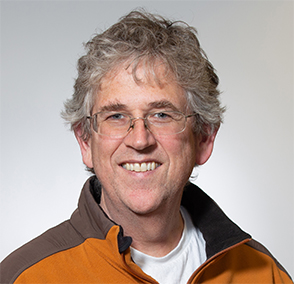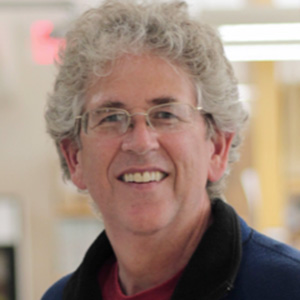The power of sabbaticals
One of the great opportunities in academic science is reinventing one's research program. In my case, sabbaticals have not led to dramatic shifts in fields. Instead, they have allowed me to visit three collaborators’ labs and learn new techniques that have empowered my lab to pursue new questions.
My first “sabbatical” actually happened before I started my independent career. I was hired by the University of Massachusetts Medical School in July 2001, but my lab in the new research building would not be ready until November. So, I accepted a generous invitation to spend three months at the Institut Pasteur learning how to comb DNA, an elegant single-molecule technique that changed the way I thought about the regulation of DNA replication.

Fast forward 11 years: I was a tenured associate professor and interested in the biochemical mechanism underlying the regulation of DNA replication that we have characterized by DNA combing. By this time I had a family, which made a foreign sabbatical impractical. I looked closer to home, and arranged to spend a year in Johannes Walter's lab at Harvard Medical School, learning how to do replication biochemistry in frog embryo extracts. It was like being a postdoc again, trying to figure out how to make a project work in an environment with all of the support and expertise I needed.
After my first two visiting-scientist experiences, I was keen for a third. Constrained still to Eastern Massachusetts, nine years after my stint at HMS, I arranged to spend a year in Jeff Gelles’ lab at Brandeis. Gelles has pioneered single-molecule fluorescence microscopy, and I wanted to use the approach to test models we had about the loading of proteins at replication origins. I had another fantastic experience. A student has since established the technology in our lab, allowing us to test models we have been speculating about for years.
My primary takeaway: Sabbaticals are a precious resource.
All sorts of constraints can make them tricky to pull off — I delayed my third sabbatical a few years because of funding and staffing consideration — but the effort is well worth making. I was amazed at how much time I had to think and work when I was away from my office. I knew that not having teaching or committee responsibilities would free up lots of time. An unanticipated benefit was that not reviewing papers or grants for a year created more free time, and free mental energy, than I could have imagined. And none of the journal editors or granting agencies complained. They all said, “That's great. Have fun. Let me know when you are back in your office.”
Being local, I was able to spend one day a week at UMass to have group meetings, talk with folks and look at data. My lab carried on fine, and I am sure they would have been just as fine if I had been somewhere else, meeting by Zoom.
If you’re fortunate enough to have access to a sabbatical, don't waste it. Use it to reinvent your lab in some small way, and enjoy yourself while you do so.
Career reinvention and reinvigoration: four stories
To mark Women’s History Month, four members of the American Society for Biochemistry and Molecular Biology’s Women in Biochemistry and Molecular Biology Committee, known as the WIBMB, have written personal essays about their career journeys.
Read them all:
Pursuing the call to change by Karlett Parra
Catalyzing change and redefining purpose by Sudha Sharma
Building community by Megan Filbin
The power of sabbaticals by Nicholas Rhind
Enjoy reading ASBMB Today?
Become a member to receive the print edition four times a year and the digital edition monthly.
Learn moreFeatured jobs
from the ASBMB career center
Get the latest from ASBMB Today
Enter your email address, and we’ll send you a weekly email with recent articles, interviews and more.
Latest in Careers
Careers highlights or most popular articles

Defining JNKs: Targets for drug discovery
Roger Davis will receive the Bert and Natalie Vallee Award in Biomedical Science at the ASBMB Annual Meeting, March 7–10, just outside of Washington, D.C.

Upcoming opportunities
No matter where you are in your career and what future path you aspire to, everyone needs leadership skills. Join ASBMB for practical strategies for building and practicing leadership skills.

Close out ASBMB 2026 with a bang
The closing reception of the 2026 ASBMB Annual Meeting will be held at the Torpedo Factory Art Center in Alexandra, Virginia.

Redefining lipid biology from droplets to ferroptosis
James Olzmann will receive the ASBMB Avanti Award in Lipids at the ASBMB Annual Meeting, March 7–10, just outside of Washington, D.C.

Creating change in biochemistry education
Pamela Mertz will receive the ASBMB William C. Rose Award for Exemplary Contributions to Education at the ASBMB Annual Meeting, March 7-10 in Washington, D.C.

Trainee mentorship as immortality
Suzanne Barbour will receive the ASBMB Sustained Leadership Award at the ASBMB Annual Meeting, March 7-10 in Washington, D.C.

